Should I Buy A House With A Radon Mitigation System?

When you prepare to purchase a home, you will inevitably need to have it inspected. This inspection is a very crucial, albeit often stressful, step. It offers you an opportunity to uncover any potential issues within the home, or the property in general. It is a chance to uncover problems that are hidden, and also uncover potential hazards. There are all sorts of mitigating factors that can lessen your desire to purchase a home. But is a radon mitigation system one of those factors?
Purchasing a home with a radon mitigation system can be a great idea. Radon occurs naturally and might be unavoidable. Radon levels are high in several U.S. states, so finding a home with low radon in your area might prove difficult. Regular testing of radon levels is important to ensure your radon mitigation system is working well.
If you find out your prospective home has a radon mitigation system, this might trigger all sorts of questions. What is radon? Is it safe? Should I buy a house with a radon mitigation system? These are all valid questions, and you should absolutely know the answers to all of them before you sign any deeds. This article answers those questions and more, and gives you the information you need to know whether or not you should buy a home with a radon mitigation system.
What Is Radon Gas And Why Do I Need To Be Aware Of It?
Radon is something you may have heard of abstractly, but you might be surprised to know it’s in the air all around you right now. Radon is a naturally occurring gas that comes out from the earth. Normally, it mixes into the atmosphere and the air. This means that while there is radon in the air all over, it is often at levels that are deemed “safe.”
In fact, radon is present in all 50 states in the country. But some states have low levels of radon, while others have levels that are much higher. There can even be significant differences from county to county. And while some areas don’t need to worry about radon levels getting unsafe, other areas need to keep tabs on radon levels.
This naturally occurring gas is radioactive, and if you live in an area where radon leaks out from the ground, it can become concentrated in your home. This is because air, even when circulated, is more likely to become contaminated with high levels of radon than the outdoors. Radon is tasteless, odorless, and clear, making it hard to detect.
If you live in a home on land where there is a significant amount of radon, you may be at risk for some serious health issues. This is because without proper radon mitigation, it can get into the home through cracks in the foundation.
Is Radon Dangerous?
High levels of radon, especially when exposed to this gas over long periods of time, can be potentially very dangerous. Radon gas, and its radioactive particles, can get trapped in your lungs, and can cause health problems, including lung cancer. In fact, radon gas exposure is the second leading cause of lung cancer in the U.S., second only to cigarette smoking.
Radon Mitigation Systems And How They Work
Radon mitigation systems require a professional. In fact, in some states, a person needs to be certified in radon mitigation or obtain certain credentials in order to perform such an installation. Sometimes radon mitigation includes installing a pipe in the basement that allows trapped gas to escape out and through the pipe, then funneled out of the home.
There are also lots of preventative measures that can be taken to mitigate radon. This includes properly sealing the home and using special sealing materials to ensure radon gas does not sneak in through vulnerable areas.
How Do I Know If My Home Has Radon?
Since you cannot see or smell radon, the only way to know if you have it is to test for it. 29 states require the disclosure of radon hazards upon the sale of a home, but some states do not. This means it is critical that you insist on radon testing when you are considering purchasing a home.
Include radon testing in the inspection. Especially if the home has a mitigation system, as this will ensure that it is doing its job. A professional can use radon measuring devices to test radon in your home. You can also install a radon detector in your home to make sure it never reaches unsafe levels in the future.
Reasons A to Buy A House With A Radon Mitigation System
Your State Requires Radon Mitigation Systems
If you find out the home you are looking into purchasing has a radon mitigation system, there might be a simple reason for it – it’s the law. Believe it or not, many states require new homes to be built with radon mitigation measures. This means that if you are purchasing a new home in some areas, your home will likely already have to pass some form of radon test.
Since radon mitigation systems are required by law in these circumstances, this should not deter you from purchasing the home. In fact, you should see it as an added safety bonus. It is still, however, critical to have radon testing done as part of your home inspection. This will ensure that the mitigation equipment in the home is working properly and the home does not have unsafe levels of radon.
The Area You Want To Live Has High Levels Of Radon
Some areas in the United States have much higher levels of radon than others. So while having a radon mitigation system in some areas might just be the status quo. You can check the EPA map to see if the area you are living in or planning to live is known for higher levels of radon.
You may also want to contact your insurance company, as they may even require that you have either a radon mitigation system or radon detector in certain areas. If you live in an area that is prone to higher levels of radon, a well-functioning radon mitigation system is a great asset. It means you can rest easy knowing your lung health is not at risk.
The System Is Effective
If you are considering buying a home with a radon mitigation system in it, you first need to ensure that the system is fully functional and effective. Once you are able to determine this, and you test the home, you know the home is safe. In fact, not only is the home safe, but having a radon mitigation system might even be a selling point for the home.
If You are Concerned About Home Safety Variables
If you like to make sure you are taking any and all safety precautions within your home, then including a radon mitigation step is a good idea. Radon mitigation systems and detectors can be just as important as carbon monoxide detectors when it comes to home safety. Having the ability to not only monitor radon levels, but also a way to keep high radon levels at bay, is a wonderful way to help ensure your home is as safe as possible.
Reasons To Avoid A House With A Radon Mitigation System
While in many cases having a radon mitigation system is a perk, this is not always the case. One reason you might not want to purchase a home with a radon mitigation system is if the home has a mitigation system but still has high levels of radon.
If this is the case, this likely means one of two things. On one hand, it could mean the system is not working properly or it is damaged. This would mean you likely will need to get a new system. On the other hand, it could mean the levels of radon are particularly high in your area, and that a radon mitigation system is not helping enough to get the home to safe levels. If this is the case, you may want to dig deeper and see if this home is worth purchasing.
What About Vapor Barriers?
Vapor Barriers are popular in many modern homes. They are installed in foundations and in wall spaces in order to prevent vapor from traveling between the walls. This helps maintain the integrity of a wall over time. Since vapor barriers are meant to block moisture from passing through walls, you might wonder if they will work to keep out radon.
While vapor barriers may help block some gas, they are not considered approved radon mitigation systems. Many states have requirements for what is and is not considered proper radon mitigation. Also, radon is a gas, and it only needs one vulnerable area in order to seep into the home. When it comes to radon gas, it is critical you consult a licensed professional.
Enlist The Help Of A Radon Professional
If you are on the fence about purchasing a home with a radon mitigation system, or have radon concerns in general, the best thing you can do is to hire a professional to help you. Depending on the state you live in, there may actually be board-certified radon specialists. Either way, you should be able to find someone who is well-versed in radon detection and mitigation.
When you enlist the help of a radon mitigation specialist he or she can test for radon and discover vulnerable areas within the home. Most of all, the professional can give you a quote for how much additional radon mitigation would cost. The professional can even say whether or not it is safe and wise to purchase the home.
Wrapping Up Buying A House With Radon Mitigation System
Radon is a silent, scentless gas that exists all over, but can be dangerous in high concentrations. This is why having a radon mitigation system in your home is often beneficial. This is especially true if you live in an area with higher levels of radon. Radon mitigation systems are often a requirement in when building a new home.

Tom Gaffey is an expert writer who currently resides in Washington D.C. Tom has a passion for real estate and home improvement writing, as well as travel and lifestyle writing. He lived the last twelve years in Hawaii where he worked closely with luxury resorts and event planners, mastering his knowledge of aesthetics and luxury products. This is where he found his passion for home improvement and a keen interest in DIY projects. Currently, Tom resides in Washington D.C, and also working on his debut fiction novel.
More by Tom Gaffey



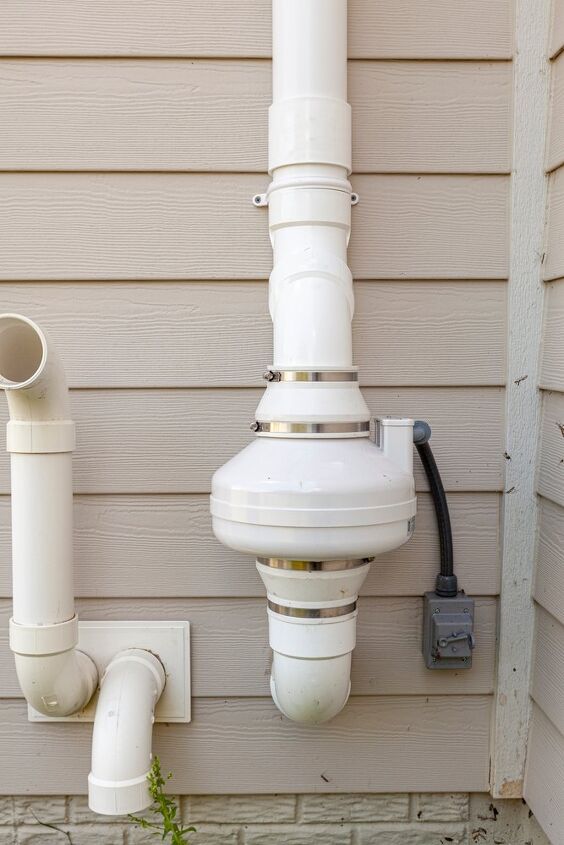







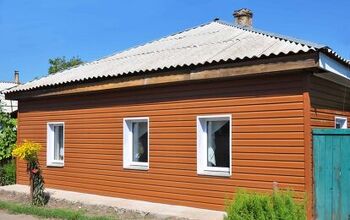

![10 Best Electric Lawn Mowers - [2022 Reviews & Top Rated Models]](https://cdn-fastly.upgradedhome.com/media/2023/07/31/9070486/10-best-electric-lawn-mowers-2022-reviews-top-rated-models.jpg?size=350x220)
![The 10 Best Table Saws - [2022 Reviews & Buyer's Guide]](https://cdn-fastly.upgradedhome.com/media/2023/07/31/9070645/the-10-best-table-saws-2022-reviews-buyer-s-guide.jpg?size=350x220)


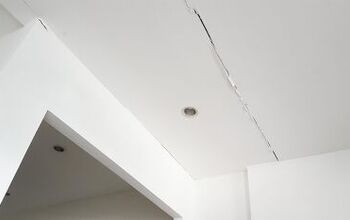
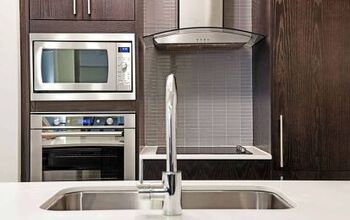

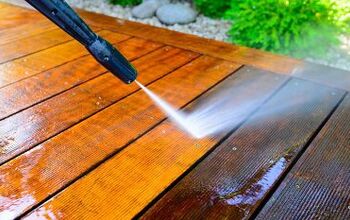
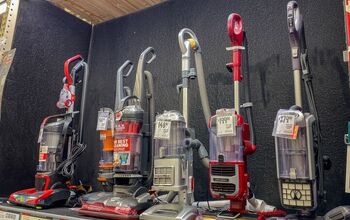

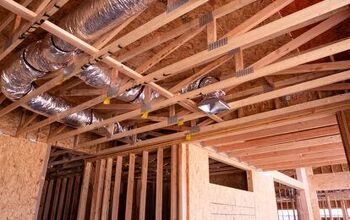
![Standard Dining Room Table Dimensions [for 4, 6, 8, 10 and 12 People]](https://cdn-fastly.upgradedhome.com/media/2023/07/31/9074335/standard-dining-room-table-dimensions-for-4-6-8-10-and-12-people.jpg?size=350x220)


